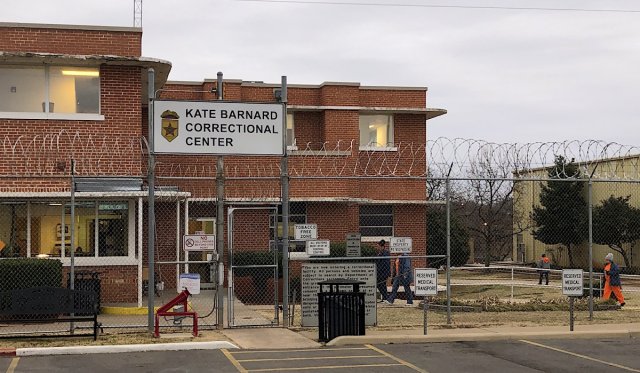

More than 260,000 Oklahomans signed an initiative petition to call for a vote on State Question 805, which would eliminate repeat-sentencing penalties for nonviolent felonies. The measure has drawn criticism from some within the state’s criminal justice community.
As a district attorney, I can understand my colleagues’ concern about criminal justice reform.
District attorneys are tasked with the weighty responsibility of protecting our communities. We want to keep our citizens safe and our society just. Naturally, there are those worried that any criminal justice reform will make that task harder — not easier.
But SQ 805 doesn’t limit our ability to be just. It merely changes our default approach to crime.
And I hope we can all agree that our default isn’t working. Our tendency to lay down years or decades in response to minor offenses has led to an incarceration crisis that has turned into a health crisis during the COVID-19 pandemic.
Oklahomans serve sentences that are 70 percent longer than the national average for property crimes and 79 percent longer for drug crimes. Our current system is failing our communities and hurting our families.
What SQ 805 will and will not do
I feel it’s important to clarify a few key elements of SQ 805 and explain why this policy change will help all Oklahomans.
The full wording of the ballot title is as follows:
This measure seeks to add a new Article II-A to the Oklahoma Constitution. This new Article excepts and does not apply to persons who have ever been convicted of a violent felony. It would prohibit the use of a former felony conviction to increase the statutorily allowable base range of punishment for a person subsequently convicted of a felony. Individuals who are currently incarcerated for felony sentences that were enhanced based on one or more former felony convictions, and whose sentences are greater than the maximum sentence that may currently be imposed for such felonies, may seek sentence modification in court. The new Article sets forth a detailed process for such sentence modification, including but not limited to requirements for a hearing, appointment of counsel for indigent petitioners, and notification of victims, and requires that the court impose a modified sentence no greater than the current maximum sentence which may be imposed on a person convicted of the same felony with no former felony conviction, and which results in no greater time served in prison than under the original sentence. It establishes an appeal procedure, provides an effective date, and contains a severability clause.
There are a few important things to note.
First, SQ 805 will not limit our discretion in prosecution. SQ 805 does not lower the minimum or maximum sentence for any crime. We can still charge and seek prison sentences that we think are just and appropriate.
Second, SQ 805 will not affect misdemeanor enhancements. We will still be able to seek felony convictions and prison sentences in those cases. In addition, the elimination of the enhancement only applies to other prior nonviolent convictions.
Finally, SQ 805 will not harm domestic violence survivors. Domestic abuse is a serious issue, and I am committed to survivors’ safety and healing process. But our current approach is not working and has led to an incarceration crisis that is hurting victims more than it is helping them.
State Question 805 will still allow us to seek maximum sentences or decide to charge perpetrators of abuse with a violent offense. It gives us a chance to reduce extreme prison sentences and divert scarce resources to treatment and assistance for victims of crime.
SQ 805 is the best next step to continue safely reducing our prison population. It could save us nearly $186 million over the next decade, and that money could be re-invested in rehabilitative resources for low-level, nonviolent offenders. Strategies such as drug court and rehab have worked to reduce crime and strengthen the community in my district — and they can work in other places, too.
Oklahoma’s long sentences are increasing prison spending without making us any safer, and we can’t point to a single study that says otherwise.
It’s time to embrace SQ 805. It’s time for reform.




















